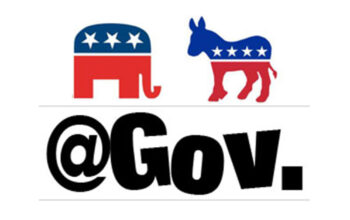
Kate McMahon
Sophomore
“We can do it!” was the infamous line of 1940’s fictional feminist icon, Rosie the Riveter. But in this modern world, is being a family figurehead the only thriving job for women? Is this the only “it” that we can do?
You may be able to decide for yourself just how women are treated in this world. In 2012, 25% fewer men than women graduated college, a trend that has been steadily favoring females since the 1970’s. Based on this fact, it is assumed that outside the walls of education, women are dominating the job market. This technically means there should be 75% more female corporate executives. However, this isn’t the case. Out of 2,000 leadership positions in the world’s top companies in 2010, only 29 of them were women. Although algebra was never my strong suit, the reality that only 1% of females hold leadership positions doesn’t exactly sound fair. To me these statistics show that despite small amounts of progress, women still face crippling disadvantages in the modern job market.
You may ask yourself, why can’t a woman hold her own against a male fighting for the same job? I am no feminist professor, but research has led me to believe a great deal of discrimination comes from the media. Swiffer is a company that advertises their wide range of cleaning products for virtually every surface in your home. One thing it doesn’t have, however, is men. Their commercials coincidentally only feature women doing the cleaning, thus leading us to believe they uphold the sexist family order similar to that of the 1950’s. Women are stuck in their homes while men are out being lawyers, doctors, and professors. I believe men are just as capable of cleaning as females are at being the president of a company.
Throwback to the holiday season, when catalogs and commercials of all brands were shoved down your throat faster than a batch of Christmas cookies. The several hundreds of magazines and promotions that you saw probably didn’t feature a little girl holding the new Nerf Rebelle Guardian Crossbow, now did it? Media makes young females out to only be capable of enjoying a beach-blonde Barbie and pulling the elevator of her dreamhouse. When girls see these images at such a young age, their brains will become wired to believe they are incapable of swinging a hammer or rocking a pantsuit. And no, I am not saying women are taught to avoid becoming corporate executive or serving in the Marine Corps. However, many do succumb to brainwashing media tactics and take these sexist ideas to heart, even if the result is not what the producer intended.
Let’s skip over to YouTube where a Pantene commercial, aired in November 2013, went viral. It’s titled, “Labels Against Women” and includes a short clip portraying several male vs. female situations. First, a male is shown typing at his desk late at night, ignoring baby bottles and mobiles cluttered around him. This father is seen as dedicated to his job, while a woman in the same situation is perceived as selfish for not paying more attention to her children. The clip continues with several other double standards similar to this.
httpv://www.youtube.com/watch?v=kOjNcZvwjxI
Although Pantene’s main goal is selling shampoo, they made significant strides towards recognizing and eliminating gender stereotypes. Why should a woman be confined to childcare and housework while her husband is working a corporate job in an office, instead of working towards achieving her own dreams outside the home? Does this idea travel all the way back to the 1840’s, where women marched the streets holding signs for their equality? When men would snicker about the idea of women in the workplace? Women couldn’t prove themselves and therefore weren’t respected.
Aretha Franklin has said it before and I will reiterate her beautiful anthem, “R-E-S-P-E-C-T”. It is that simple. Respect is what women need and deserve. When people respect women, they are thus treated as equals; not some incapable homosapien cursed with two X chromosomes.



